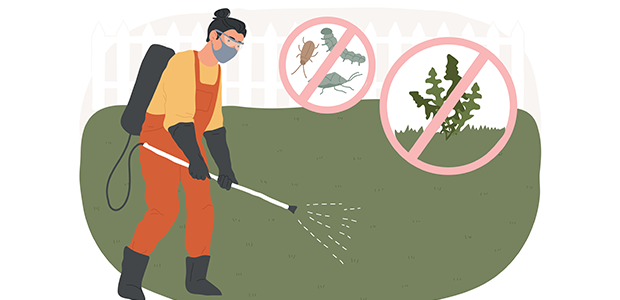
WeedOUT Raises $8.1 Million to Fight Weed Resistance
Agritech startup WeedOUT has secured $8.1 million in series A. Fulcrum Global Capital, a prominent US agri-focused VC known for its extensive network of farmers across the US, led the round.
This new capital aims to further the company's mission to address weed resistance with its innovative green solution.
Other contributors to the equity round included Bunge Ventures, the investment arm of the agriculture and food company Bunge, and the Singapore-headquartered agrifood tech fund Clay Capital. This funding comes on top of several grants the company received from the Israeli Innovation Authority.
WeedOUT's solution addresses one of the most significant challenges to agriculture and food security: herbicide-resistant weeds. The company has developed a novel and environmentally friendly method to drastically reduce the spread of weeds that are no longer affected by conventional chemical herbicides.
“Resistant weeds that plague crops are a major challenge for farmers globally—and the situation has only worsened,” asserts Kevin Lockett, Partner at Fulcrum Global Capital. “Fulcrum Global is excited to support WeedOUT’s cutting-edge biological platform and the unique approach it has pioneered to address the resistant weed problem. The company’s integrated management approach aligns seamlessly with existing farm practices and could enable growers worldwide to produce more food on the same amount of land and in a much more sustainable way.”
“Weeds are highly competitive, aggressive plants,” explains Efrat Lidor Nili, PhD, Co-Founder and Co-CEO of WeedOUT. “They compete with crops for all essential resources, including soil, water, nutrients—and even sunlight. Weeds substantially reduce crop yield.”
The company’s first target is the Palmer amaranth weed (Amaranthus palmeri), a major nuisance in the United States, Brazil, and Argentina. The weed can grow up to several meters high and invade fields of corn, cotton, soybeans, and sugar beets. It can crash corn crop yield by 90% and soybean yield by 80%. “Our green solution specifically targets this type of resistant weed,” notes Lidor Nili.
The prolonged use of chemical herbicides, such as glyphosate, has enabled the destructive weeds to develop multiple resistance. Nicknamed “super weeds,” the traditional method for countering them has been chemical herbicides.
“Evolution is always smarter,” adds Lidor Nili. “The weeds learn ways to evade the effects of the herbicides. But WeedOUT is applying an entirely new, green approach that targets the reproductive system of resistant weeds and will provide a sustainable, long-term solution.”
WeedOUT's innovative approach draws inspiration from sterility techniques that have been effectively used since the 1940s to manage populations of unwanted insects, such as mosquitoes and flies. It focuses on a proprietary weed pollen, obtained from male plants, which, when used to fertilize female weed ovules, results in the production of nonviable seeds, thus preventing the emergence of a new generation of resistant weeds.
Since the sterility technique was introduced eight decades ago, it has not led to any resistance issues in the realm of insect control and is regarded as one of the safest methods developed. WeedOUT has pioneered the application of this proven technique to the domain of weed control.
The founders of WeedOUT initially conducted experiments on their home balconies, achieving immediate success. With convincing proof of concept and essential seed funding, they moved to local field trials, eventually expanding to larger-scale trials across the US in crops such as cotton, soybeans, and sugar beets. These trials were carried out in collaboration with leading experts in weed control.
The investment secured in the latest funding round is allocated towards extending field trials to various US regions, including Georgia and Nebraska, as WeedOUT prepares to introduce its first product aimed at combating the Palmer amaranth weed. The company has recently applied to the Environmental Protection Agency for marketing authorization and is developing new formulations to address different weed species.
“WeedOUT effectively targets the innately complex reproductive system of the plant, not just one enzymatic pathway,” describes Orly Noivirt-Brik, PhD, Co-Founder and Co-CEO of WeedOUT. “This approach makes it almost impossible for the weeds to develop resistance. As the weeds are treated with pollen, our method is designed to work in harmony with the ecosystem and to avoid threats to the food crop.”
The WeedOUT solution marks a new era for farmers. “By enabling them to integrate our biological approach with traditional methods, we are redefining weed management strategies,” emphasizes Noivirt-Brik. “Our products will dramatically enhance crop yields while simultaneously minimizing dependency on chemical herbicides. We envision our technology being widely adopted for multiple crops and serving as a key solution in the battle against resistant weeds. WeedOUT will make a vital and meaningful contribution to agricultural practices and food security, worldwide.”

